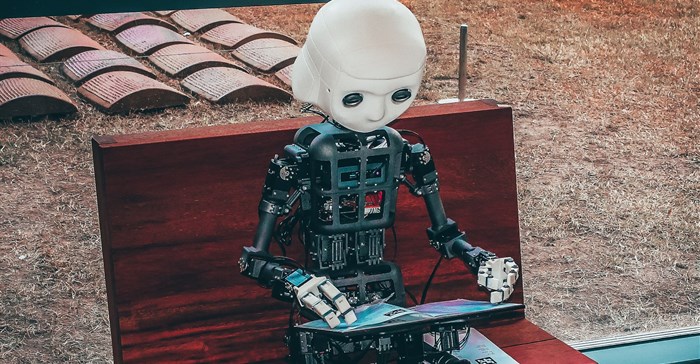I would like to apologise for contributing yet another AI article to a world saturated with AI articles, but everyone's talking about it and I don't want to be left out. My Linkedin feed is full of it. Maybe I just follow those sorts of people, but generally speaking it's a popular topic.

Source © Andrea de Ssantis
Unsplash Craig Hannabus says AI is not the milestone that will revolutionise civilisation
A little obvious. I like it, I think it's good, I think these tools are incredibly helpful. What I want to address is this idea that these AI tools are going to replace people.
I follow some creative folks on various platforms. They shift their focus a lot (as do many of us), so sometimes they're posting photographs, sometimes they're posting sketches, it varies. It's not earth-shattering stuff, but I think that any kind of creative expression, whatever form it takes, is healthy.
However, as of late, these same people have become incredibly proficient in technique. What used to be scribbles have become exceptionally wrought pieces. I was suspicious, so after chatting to one of these 'artists' I got an admission of guilt, they'd used AI.
Shock and horror.
There are so many implications here.
- Firstly, art is an expression of the human condition. The things that have hurt us, brought joy, forced personal growth, all expressed on canvas or in words. To ask an AI to do that on your behalf removes all of the human element. It takes something out of each brush stroke. Painting shifts from this organic piece of work into the world of the almost clinical. When last did ChatGPT lose a loved one?
- Secondly, knowing that the execution has been taken care of by something other than you, there's a tendency to scrutinise the subject matter. That's where AI truly shines. By removing the veneer, we focus on the grain. Elves, orcs, comic book characters, it's all there, and it's all stale and done to death. Digital art is horrid, and AI will make it better. Not from a technical point-of-view, but hopefully an improvement in subject matter. After we’ve seen our one-millionth dragon spewing flames at a hapless princess, there will be a revolt against the revolting.
- Thirdly, and most concerning, the death of expression. I wanted a piece of this art action, so I found a nice AI tool that generates images. I played around for a little bit and sure enough, it made some nice pictures based on my inputs. Then it gave me a prompt that led to an epiphany. "Add the phrase 'like Vermeer' to get a specific style." AI will never have its own style, it'll always rely on the human masters that came before.
Anyway, the point I'm trying to make is that this is a bit of an evolution in search I suppose, but this is not the milestone that will revolutionise civilisation as we know it. I know that nobody has really made that claim, but just in case you were thinking it, stop that immediately. You're being silly.
Finally, if you are using AI tools to generate art (whether it be image or writing), please credit the tool you're using. You're not Van Gogh, you're just someone with an internet connection and a dream. Go down to PNA, get yourself some paint and a few brushes, and do it for real. The world desperately needs more meaningful contributions to culture, so go for it.

